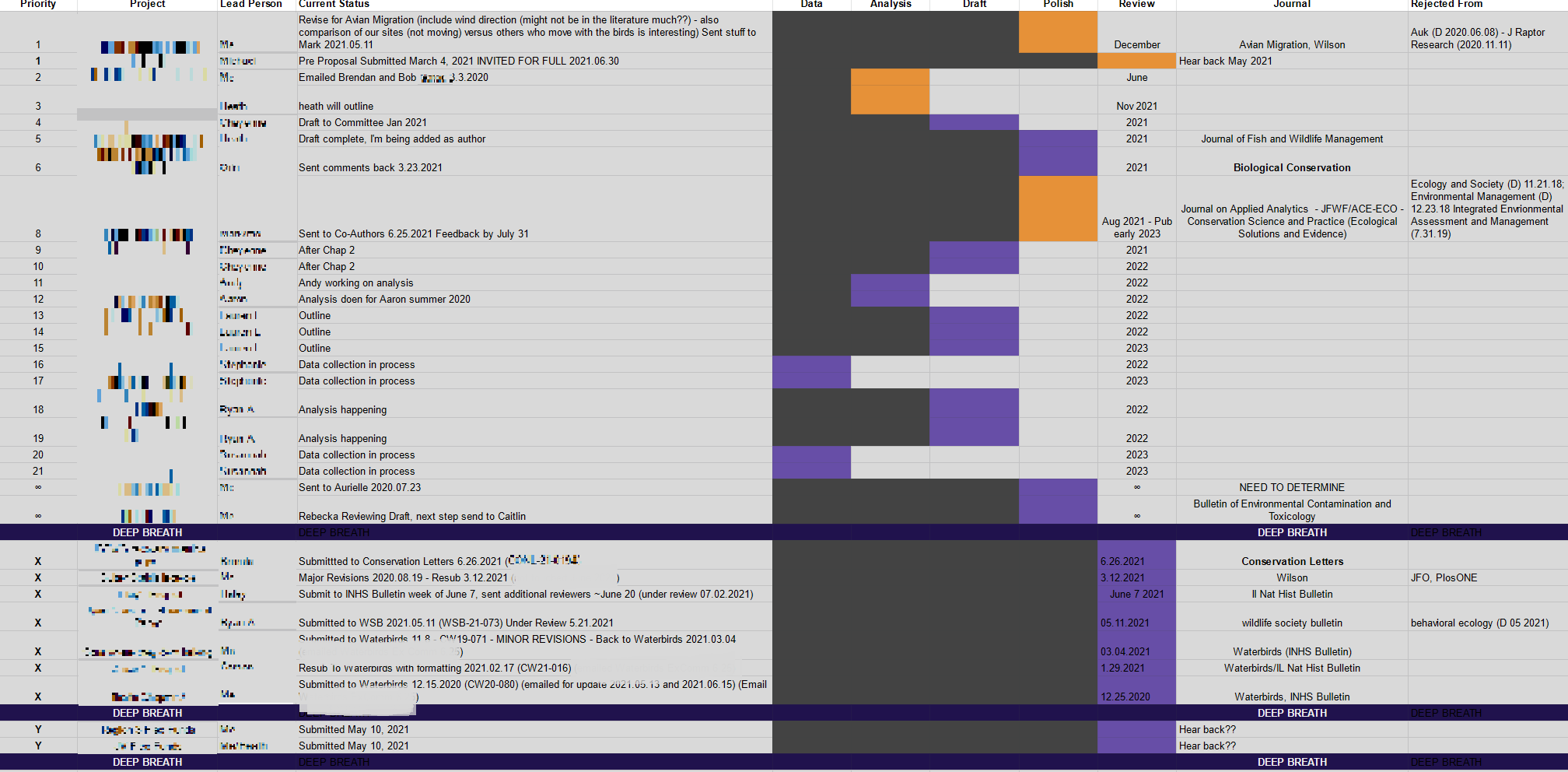How I Stay Organized Update
I originally wrote this post in 2017, you can read the original version here.
I’ve long been a bit of an over enthusiastic adopter of productivity systems, and hacks. During my PhD I had to make a rule for myself to stop switching systems, as it became a ‘productive’ form of procrastination, which helped no one, least of all me.
Much of my system from 2017 persists, I remain a very tech centric organizer, though I fully acknowledge that tech based solutions aren’t for everyone, and know many folks who use something similar to Raul Pacheco-Vega’s Everything Notebook link here.
My central hub remains Todoist, and it remains the places where I file away the things I think of while not at work, so that I don’t have to keep dwelling on them until I’m back at work. I also organize a fair bit of my personal life reminders on Todoist, from when the dogs need their flea and tick meds, to my weekly grocery list.
I will admit that I have been a heavy Todoist user for the better part of 5 years now, and I haven’t looked at the other options that are out there, because I remain really happy with what Todoist does, and the new features that are coming out. The way Todoist handles reoccurring tasks is super helpful to me, its multi-platform and works with multiple people well, and they’ve recently rolled out boards which has been huge for helping me do a better job of managing information as well as tasks. For instance I have one project which is just grants, and its set up as a board, with multiple columns, one column is just full of all the grant report deadlines (oh so many grant reports), so those are there, and I can look at them if I want, but they aren’t filling up other places. Each grant also has a column where things that need to be done, or notes I need to keep near by are kept.
I also have a project board for the field station, one for the Firebird project (a very large project I lead), and a project board for all the service work I do for GoMAMN where I’m currently Chair, and Wilson Ornithological Society where I am 2nd VP. I have a graduate students board, where each student has a column, and after our regular checkins I can update the notes in their column with the relevent notes, so that my terrible memory has a record of what is going on, and I can also add tasks there that the student needs from me.
I also have two spreadsheets I maintain, one is a ‘five-year’ plan (really more like a decadal plan at this point since some of my service commitments run through 2029), where I can plop in things like conferences I want to attend, grant reporting deadlines (why are there so many reports?), when students are starting/defending, major service committements, as well as when I plan to take vacations, family weddings and events. I got got that idea from The Professor Is In. This helps me see the bigger picture all at once, and identify what times of year are already really tight, in a way taht looking at my calendar doesn’t always represent well. I check this weekly, its one of my reoccurring Monday tasks. Its also where I track how I’m doing on the metrics I’m evaluated on each year (papers published, grant dollars awarded, presentations given), and it calculates the 3 year averages as well.
I also have a spreadsheet where I keep track of all my projects, what the status is, who has it right now (especially helpful for manuscripts), when we next expect to meet/when I am next expected to contribute, what journals have rejected them, who I suggested for reviewers, etc. I got that idea from Alex Bond. I check this at least once a day, sometimes many times a day depending on what project I am working on in that moment.

I’ve also found these books very helpful in how I think about time management/organization
A World Without Email - Cal Newport
So Good They Can’t Ignore You by Cal Newport
A PhD Is Not Enough by Peter J. Feibelman
Checklist Manifesto by Atul Gawande
Cal Newport’s Blog Study Hacks is also outstanding.
I’ve been in this job two years and I’m still figuring out the best way to stay on thop of the 15+ projects we’re running at any given time, and all the administrative and facilities tasks that go into a field station. For me the central theme in all of this is, if I don’t write it down I will not remember it, and I am a very visual person, so having a system that sets things up visually so I can quickly find what I need without digging through a dozen emails, is SUPER helpful.
Questions - I’m on twitter @RallidaeRule or email auriel[@]illinois.edu